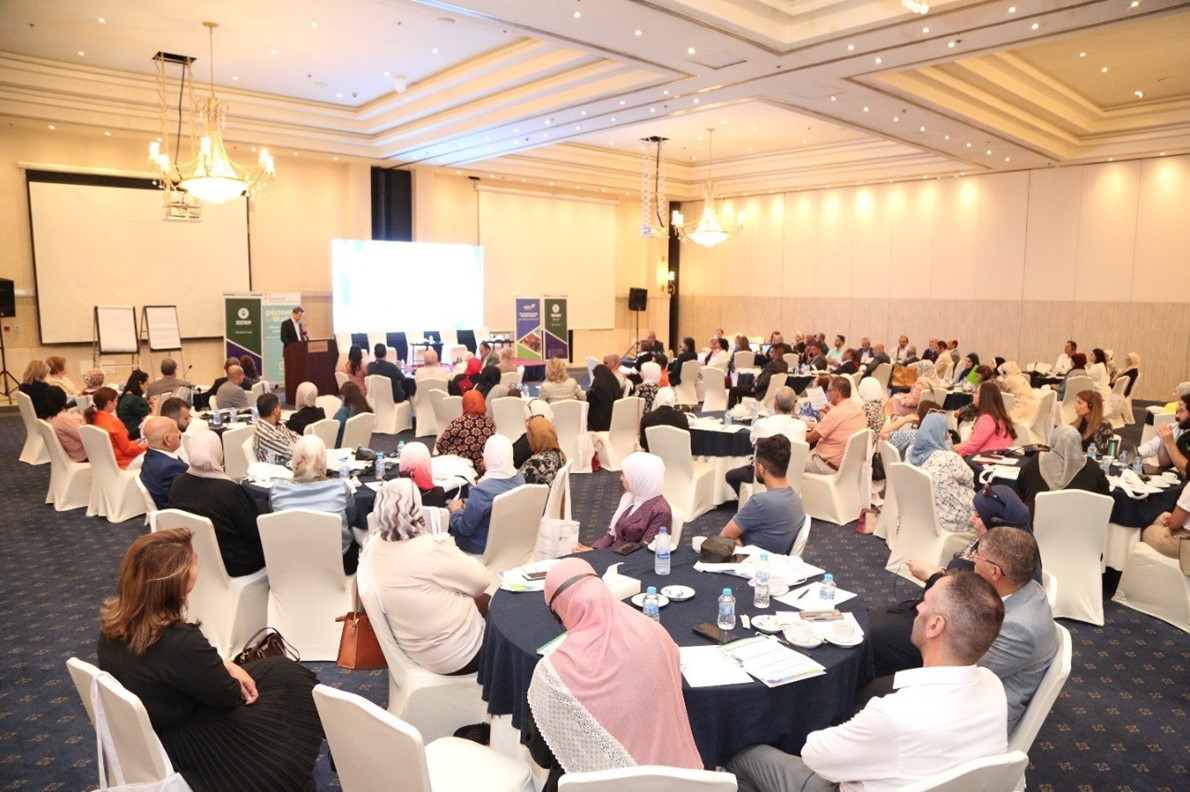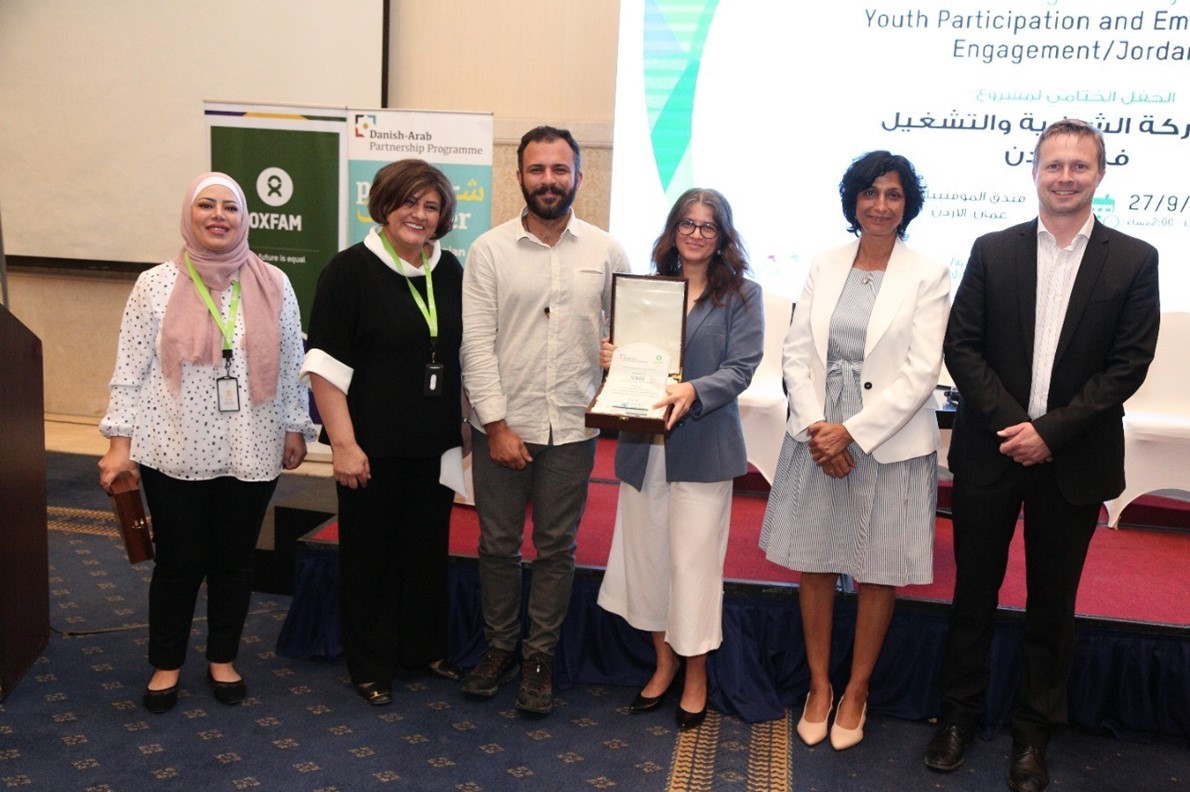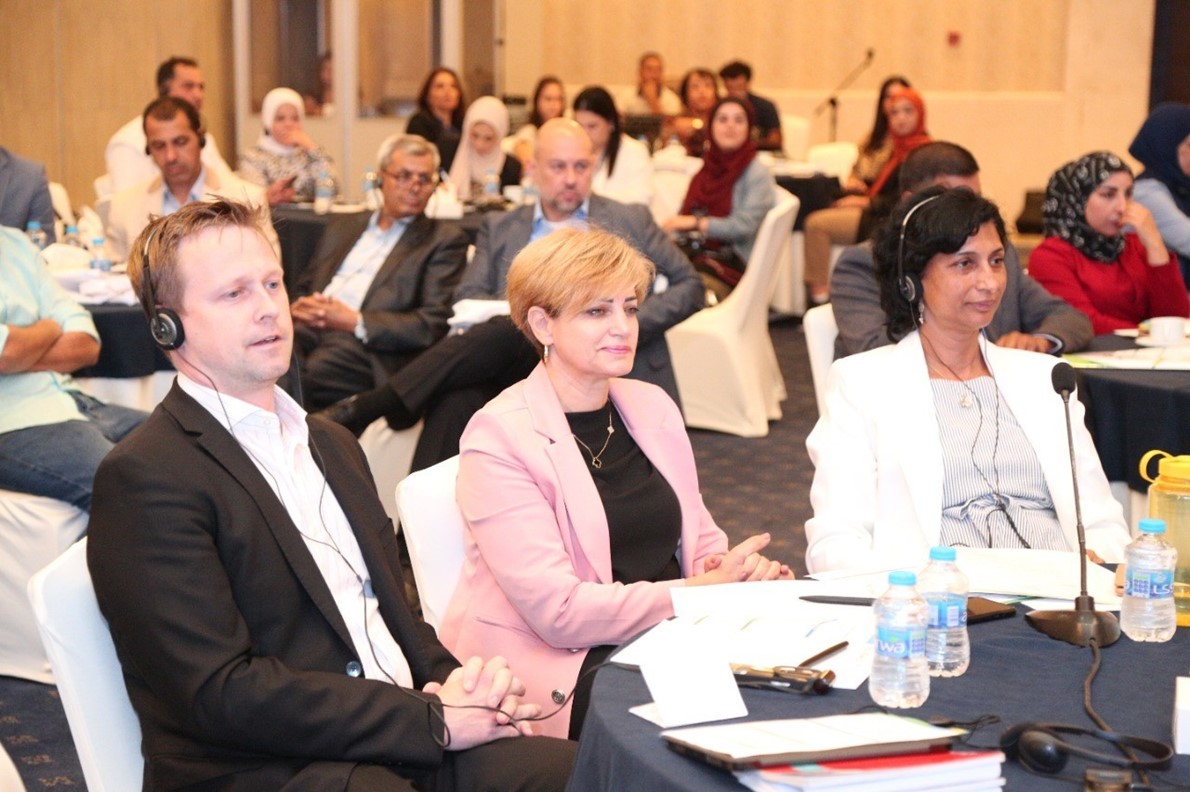AMMAN — Oxfam in Jordan announced on Tuesday the
end of a four-year initiative, funded by the
Danish Arab Partnership Program (DAPP), which was introduced to boost employment among young people in the
Kingdom.
اضافة اعلان
The event, held at the Möevenpick Hotel, brought
together civil society representatives, implementing partners, experts,
government officials and young Jordanians to discuss challenges facing youth
employment, and achievements and lessons learned during the Youth Participation
and Employment (YPE) project.
DAPP project manager Rula Abu Rub told
Jordan News that “the YPE project achieved most of its objectives throughout these four
years, mainly reaching and supporting the employment of 65,000 young Jordanian
and Syrian youth, in addition to creating more than 5,000 jobs in six
governorates.”
“Oxfam helped training more than 50,000 young men
and women in life skills and technical skills, while 2500 youth were trained
and coached on entrepreneurship,” she said.
She pointed out that “working with more than 100
companies and 34 Community Based Organizations, Oxfam and partners, helped in
connecting young people with jobs, internships and apprenticeships.”

“Oxfam has been always proud to work on this
initiative with outstanding local partners who share our commitment to ensuring
young men and women in Jordan have a chance to fulfil their potential,” said
Nivedita Monga,
Oxfam in Jordan country director.
“Jordan emerged from the COVID-19 pandemic with
unprecedented levels of youth unemployment, and the Kingdom’s recovery has been
buffeted by global crisis,” she said.
“Now, more than ever, it is critical to harness the
untapped talent of young men and women to drive Jordan’s economic growth,”
Monga added.
Oxfam helped training more than 50,000 young men and women in life skills and technical skills, while 2500 youth were trained and coached on entrepreneurship,
The YPE initiative also launched public campaigns
highlighting women’s roles as economic representatives and entrepreneurs, as
well as conducting advocacy to promote vocational training and address
prejudices against vocational work.
Mohammad Al-Zoubi, director of the Community
Development Institute at KHF, said that “the role of our organization in this
project consisted of bolstering and supporting youth’s capacity to switch to
entrepreneurship rather than waiting for a job and working for others.”

On expatriates’ presence in Jordan and their impact
on unemployment, President of the Workers’ House Hamada Abu Nijmeh contended
that “Jordan will be in constant need for expatriates as long as there is a
lack of a proper policy to fill in expats positions with Jordanian youth
workers.”
Ahmad Awad, head of the
Jordan Labor Watch, told
Jordan
News “there are many factors that hinder youth integration in the labor
market, including ineffective and biased policies, given that the policies
should balance the rights and interests of employers as well as workers.”
Awad pointed out “the current policies focus on the
financial side and are not effective, as such they do not help provide jobs for
people, rather they tend to weaken the labor market.”
The policies created a gap between the skills and
the labor market, according to Awad who noted that “policies must be reviewed
along with an administrative system that is able to implement effective
policies.”

“The taboo culture is not the reason why we still
have many expats in Jordan”, he pointed out.
He elaborated that “as in principle, if there is a
decent job with a reasonable salary, with respect to the Jordanian work
standards, then the turnout on jobs will be larger by the local community.”
He said that “20 years ago, more than 90 percent of
sanitation workers were expatriates. However, the job requirements and
conditions have changed, currently more than 90 percent of sanitation workers
are Jordanians.”
Read more Features
Jordan News



